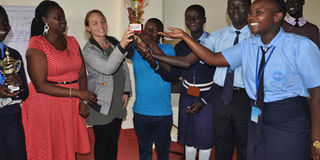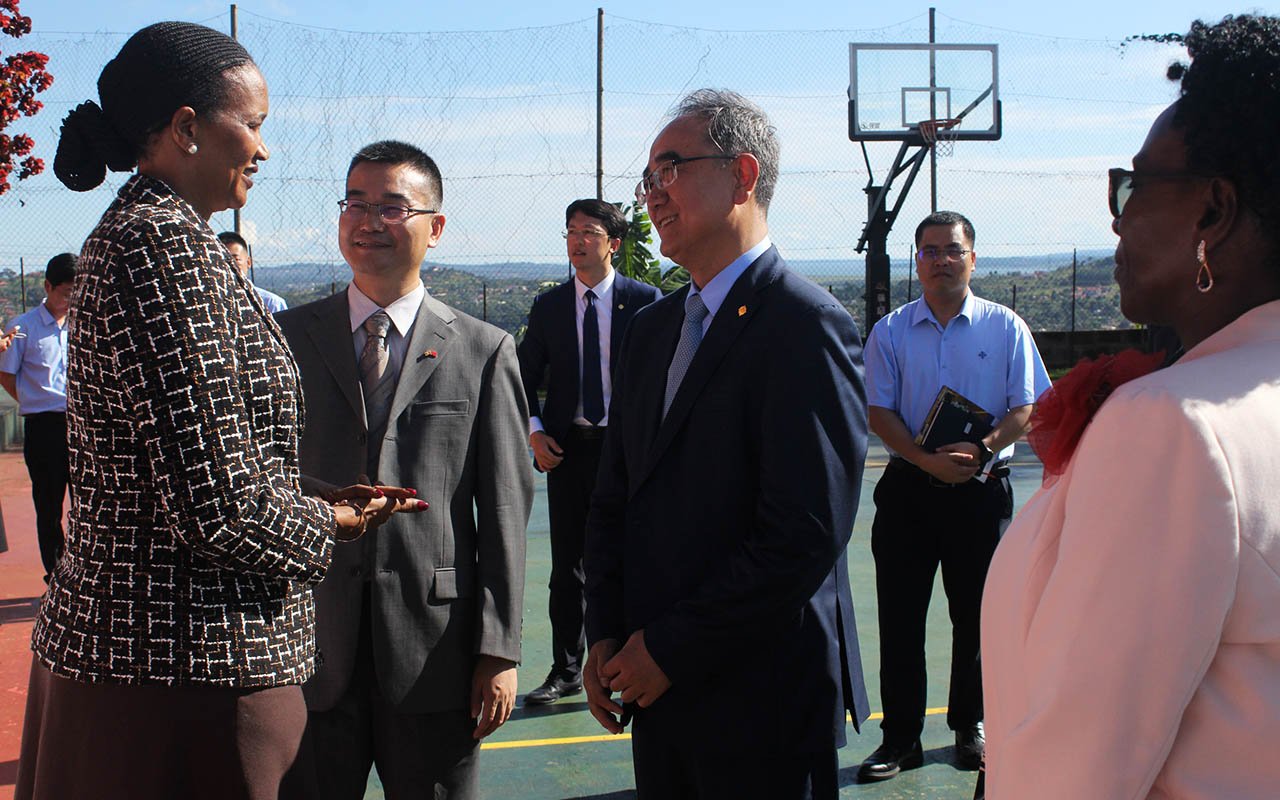Anti- corruption school debating clubs take root in northern Uganda

Students of Ocer Campion Jesuit College and the patron of the school debating club Mr Samuel Bwambale receive a trophy after emerging best at the anti-corruption debating competition in Gulu town.
The campaign to spread anti-corruption debating clubs in secondary schools has been extended to northern Uganda.
The clubs which hav been thriving in districts like Busia, Hoima, Masindi, Pakwach and Nebbi are now operational in Gulu and Amuru districts.
The clubs are thriving in Ocer Campion Jesuit College in Gulu District and Restore Leadership School in Amuru.
Northern Uganda Debate Society is spearheading the effort with support from Action Aid Uganda to promote transparency and to encourage young people demand accountability from public officials.
This, according to organisers is aimed at having a corruption free nation.
In Gulu, students (from Gulu and Amuru districts), engaged in a debate about various anti-corruption themes.
The overall winners of the debate competition were Gulu town-based Ocer Campion Jesuit College while Restore Leadership School emerged second.
They were rewarded with trophies and certificates.
The students resolved to spread the gospel by appointing anti-corruption class ambassadors, organising inter-class and school anti-corruption debates, write articles against corruption, compose anti-corruption songs and drama, petition public officials and leaders on issues like shoddy work, lack of drugs in health centres, among other sustainable action points.
The debates are part of Action Aid Uganda’s effort to promote accountability and fight for social justice.
The organisation, under the I Paid A Bribe platform, encourages citizens to report corruption, according to Mr Phillip Kabuye, the officer in charge of the project that has been used to mobilise young people, mainly those at school to become conscious about the impact of corruption.
He said Action Aid Uganda guides the students on how to create the clubs through their teachers who act as club patrons, and leave them to manage and sustain them.
“These clubs are used to raise the students’ consciousness to appreciate that public resources like taxes do not belong to civil servants or contractors. They will also grow up knowing how to demand accountability from those holding public offices,” he said.
According to Mr Kabuye, the clubs are intended to uphold the culture of integrity, transparency and accountability among young people at an early age before joining the public and private sector in their future careers.
In Masindi District, students from St Cyprian SSS, Strive SSS and Kiziranfunzi SS, Masindi SSS, Modern Pride SSS, are already active under their anti-corruption clubs.
Apart from engaging public leaders on issues of accountability and value for money, the students demand accountability from their teachers because charity begins at home.
One student from a Masindi-based school narrated how a games teacher, who had pocketed money that was meant for sports trophies and awards, was forced to surrender the cash after members of the anti-corruption club reported him to the school managers.




